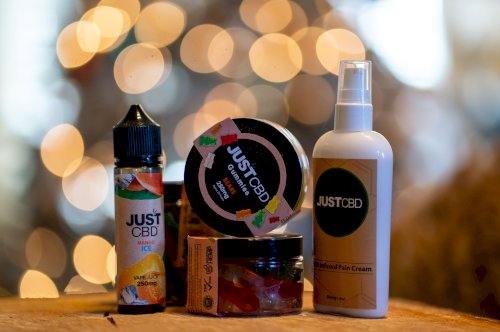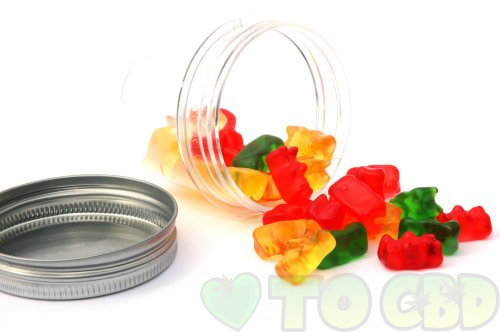Does CBD Oil Potency Matter? How to Determine It?

Quite a few people are starting to realize that a regular CBD supplementation program might do them some good. This is primarily due to the growing amount of scientific evidence produced over the past ten years that indicates that CBD may cause a myriad of physical and mental health benefits. But it should be noted that not at all CBD extracts are created equally. Manufacturers of CBD oils produce supplements that can vary widely in not only quality but potency as well. But what is CBD potency exactly and how much can it affect our customer’s results with our products? Let’s take a moment and delve more deeply into what makes up a potent CBD extract here:
WHAT EXACTLY ARE CBD OILS?
CBD oils are defined as extracts that contain bio-available levels of CBD (which is also known by its proper name of cannabidiol) infused into a carrier oil. While these two essential components are always present in a CBD oil, they can also contain a variety of other compounds such as terpenes, other cannabinoids, phytonutrients, vitamins, and plant flavonoids. The other substances that are found in any particular cannabidiol oil are mostly dependent on the quality of the initial source of CBD, the type of carrier oil that is used, and how the cannabidiol gets extracted and processed.
These type of oils are primarily extracted from cannabis or hemp due to the abundance of cannabidiol found in those species of plants. As we all know, cannabis is still not legal nationally in the US; this plant is only legal in certain states or cities. However, the cannabidiol supplements that are legally available throughout the nation are hemp-derived CBD products that have less than 0.3 percent THC content. This is because THC is the primary cannabinoid that causes the intense psychoactive high that results from cannabis use.
WHAT ARE THE DIFFERENT FORMS OF CBD OILS AVAILABLE ON THE MARKET?
Cannabidiol oils can be manufactured in a variety of different forms. These types include:
1) Full Spectrum CBD Oils
Full spectrum hemp-extracted cannabidiol oils typically contain the widest variety of cannabinoids, phytonutrients, vitamins, terpenes, and flavonoids. This is primarily because these types of extracts are minimally processed in order to provide the most therapeutic compounds possible to the body. However, it should be noted that they also contain a small percentage of THC (up to 0.3 percent). If these types of CBD oils are overused consistently, they could trigger a “false” positive in certain drug tests for marijuana use.
2) Broad Spectrum CBD Oils
Broad spectrum hemp-derived cannabidiol oils are extremely similar to full spectrum varieties due to the fact that they also contain an extremely wide variety of cannabinoids, terpenes, flavonoids, and phytonutrients. However, broad spectrum cannabidiol oils contain NO THC at all. These types of CBD extracts could be perfect for any of your customers that have jobs with extremely strict drug testing policies.
3) CBD Isolates
CBD isolates are not exactly “cannabidiol oil”, but they certainly are a cannabidiol concentrate. CBD isolates are the purest, most refined form of cannabidiol extract on the market; most types of these products test at 99 percent CBD or higher. They are usually produced in a crystallized or white powdered form. They also contain no THC at all. While cannabidiol isolates are not CBD oil by definition, they are actually often used to formulate CBD oils by being suspended in a carrier oil.
4) CBD Distillates
Cannabidiol distillates are just slightly more refined than broad spectrum CBD oils. These types of extracts also contain a wide variety of cannabinoids and healthy plant compounds. However, CBD distillates often contain a higher level of THC than 0.3 percent as well. This is why these types of extracts are often used in areas with a legal cannabis industry (rather than the nationally legal hemp industry).
WHAT DOES POTENT MEAN IN REGARDS TO CBD PRODUCTS?
At first glance, it would seem that the potency or strength of a cannabidiol supplement would be easy to deduce. Yes, it is true that most CBD products on the market have very clear and detailed labels with their contents. However, it is very easy to get confused about which numbers and data points are important to determine the exact strength of any particular supplement. Simply reading the amount of CBD a product contains is not enough to determine its potency. A few other factors such as the purity and the type of initial CBD extract used need to be considered. But to make matters short, the “potency” of the CBD oils is actually referring to the concentration of the cannabidiol found within the product. The potency of a cannabidiol concentrate is often referred to as its “strength” as well.
HOW IS CBD STRENGTH DETERMINED?
The cannabidiol concentration of any supplement is determined by dividing the total amount of CBD by liquid in the product’s entire volume. For example, if a certain CBD oil has 300 milligrams of cannabidiol and it is contained in a 30-milliliter bottle, you can determine that the oil has a concentration of 10 milligrams of CBD per every 1 milliliter of liquid. This means that it is more potent than any other supplements that have a smaller than 10:1 ratio of CBD to oil (and vice versa). For example, another CBD oil with 300 milligrams of cannabidiol in a 60-milliliter bottle would be only half a potent as the above oil since it has a CBD to oil ratio of 5:1.
There are going to be many times that you will see a percentage number on a CBD supplement label. Just keep in mind that this number is not always referring to the potency of the entire product. Sometimes, it is referring to the purity of the initial cannabidiol concentrate that was used to make the oil. For example, if a particular CBD oil was made with a cannabidiol isolate, it is not uncommon to find the term “99% CBD” somewhere on the label. Just make sure that you always understand this distinction so that you can find the supplements that work best for you.








